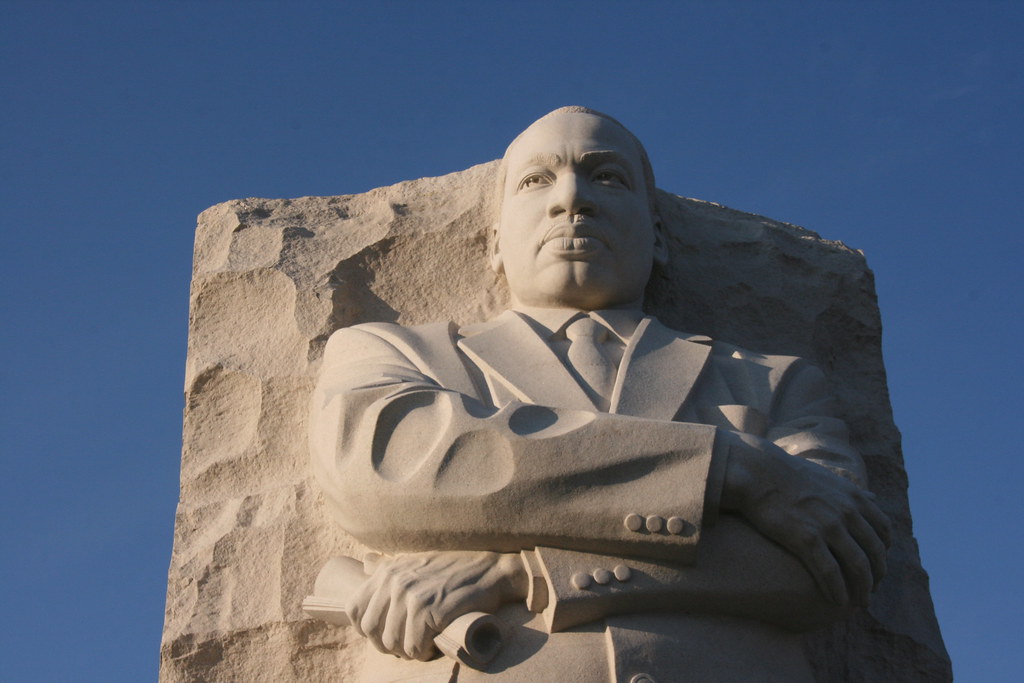This past Monday marked the 37th national observance of Martin Luther King, Jr. Day, the federal holiday commemorating the slain civil rights leader’s life and legacy.
As has become a trend in recent years, many of America’s biggest corporations (who seem to have forgotten King’s actual thoughts about capitalism) marked the occasion by posting quotes from King on Twitter. The most egregious examples of these came from Wall Street’s biggest banks, who have profited from racism throughout American history.
Bank of America tweeted it was “remembering the lasting achievements and legacy” of Dr. King. JPMorgan proclaimed they were “honoring and celebrating King’s dream, which inspired the nation with a message of justice and unity.” BNY Mellon said it was honoring King’s legacy by “standing up for equality and driving progress”. Morgan Stanley touted their company’s own “commitments to advancing racial equity” as their way of “honoring [King’s] legacy”. Similar statements came from other banks, including PNC, TD Bank, Wells Fargo, State Street, Citizens Financial, Fifth Third, KeyBank, M&T Bank, Citigroup, and Capital One.
What you won’t find in these PR statements is vital information about Wall Street’s actual commitment to antiracism. Despite their public celebration of King’s legacy, every single one of these banks is currently backing a lawsuit to uphold the banking industry’s discriminatory practices against people of color.
Last September, the Consumer Bankers Association (CBA) – which counts as members every single bank I’ve listed above – sued the Consumer Financial Protection Bureau (CFPB) over its decision to classify discrimination as an “unfair, deceptive, or abusive act or practice” (UDAAP). In their lawsuit, the CBA objects to the CFPB’s actions as “arbitrary and capricious,” complaining that the decision did not go through a formal rulemaking process and will impose “significant compliance costs” on banks.
As my colleague Max Moran has previously noted, the lawsuit is a clear example of big business defending racism and bigotry. If successful, the CBA’s lawsuit would stop CFPB from cracking down on the financial industry’s well-documented discriminatory practices in products like deposit and checking accounts and credit reporting. The lawsuit itself rests almost entirely on (flimsy) complaints about administrative procedure to invalidate the regulatory change. If this use of pedantic legal minutiae to justify discrimination sounds familiar, it should – it was thoroughly employed by segregationists to defend Jim Crow laws.
Consumer watchdogs like Americans for Financial Reform have also taken note of the difference between what Wall Street says in public and what it actually does in practice. In a December letter to the CBA and its co-plaintiffs, AFR and over 50 advocacy groups called on the banking industry to drop their lawsuit, noting the “sheer hypocrisy” of trying to uphold discrimination after portraying themselves as racial justice allies following the 2020 George Floyd protests.
It is quite telling that these banks are hiding behind industry groups like the CBA rather than suing the CFPB under their own names, which could damage their recent public rebranding as racial justice allies. Under this system, they can reap the PR benefits of “honoring King’s legacy” in public, even as they quietly work behind the scenes to uphold profitable discriminatory practices. It’s the latest way that Wall Street has learned how to make money at the expense of people of color, and probably not the last.
We must reject their phony PR tactics and disgraceful efforts to destroy Dr. King’s Dream. If big banks want to truly honor his legacy, they should stop fighting to uphold discrimination – which means dropping their baseless and hypocritical lawsuit against the CFPB.
Image Credit: “MLK Jr Memorial” by alvesfamily is licensed under CC BY 2.0.

